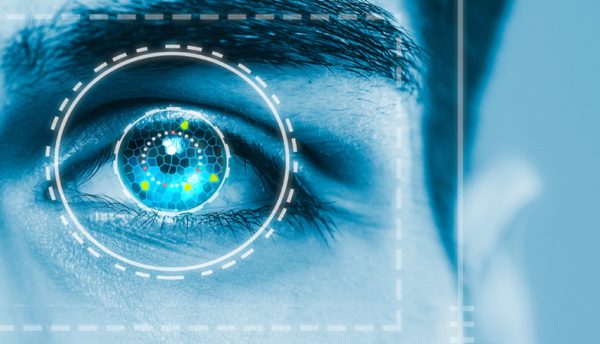Biometric technology is responsible for shaping the future of digital identity as well as making great strides in creating efficiencies in cybersecurity. John Cullen, Strategic Marketing Director Digital Identity at Thales, explores the expansive benefits of biometric technology and how it acts as a key enabler for digital identity and its applications in various sectors.
Digital IDs – electronic certificates used to represent and authenticate users’ identity – are an emerging technology set to transform countless touchpoints in our lives. From banking, retail, travel, voting, law enforcement and online services – the potential use cases are vast. And they’re on track for a huge growth trajectory in years to come; over the next few years the number of users of digital IDs is predicted to increase by more than 50% from 4.2 billion in 2022 to 6.5 billion in 2026.
Biometrics, the use of unique physical or behavioural characteristics for identification and authentication, play a crucial role in the advancement of digital identity, allowing for a safe, secure and streamlined identity verification process for all involved.
Here are the ways in which biometrics are a key enabler for digital identity and its applications in various sectors:
Enhancing security and authentication
Biometric authentication relies on unique physical or behavioural traits; the most used being fingerprints, facial features, iris patterns, or voice. These distinctive characteristics are difficult to forge, making biometrics a robust security measure for verifying digital identities. Unlike traditional passwords or PINs that can be stolen, biometric data cannot be replicated easily, enhancing protection against identity theft and unauthorised access.
Efficient travel with digital ID passports
For the travel industry that relies heavily on physical verification, biometric-enabled authentication processes are a natural solution to this. Indeed, biometrics, such as facial recognition or fingerprints, are utilised in digital ID passports to streamline travel processes. For instance, American Airlines’ Mobile ID product app combines travel credentials with passport information, allowing passengers to skip queues at all checkpoints and lounges. Pre-checks done before arriving at the airport enhance efficiency, reducing wait times at security, bag drop and passport control.
Securing healthcare data
In the healthcare sector, biometrics are vital for patient identification and record-keeping. Electronic health records (EHRs) integrated with biometrics enable accurate patient identification, preventing medical errors and ensuring personalised care.
For example, when a patient moves from one healthcare provider to another, there is a risk of losing important data along the way. And the consequences can be considerable. If the patient has an allergy to a certain drug and this isn’t made clear to the healthcare provider, the patient’s health is put at great risk should they be inadvertently administered said drug. Biometric patient identification mitigates that risk by ensuring greater accuracy and transparency when sharing critical health attributes and medical histories for patients – a scan of one’s finger or face can provide details on their specific health-related information that the healthcare provider requires to do their job.
Moreover, telemedicine platforms can use biometrics for secure patient authentication during virtual consultations.
More convenient retail and financial sector interactions
Retailers increasingly use biometrics for secure transactions and offer personalised customer experiences. Biometric authentication allows for seamless and secure payments, reducing the risk of fraud. Thanks to a digital identity, retailers can also ensure that the customer in question meets any age-restrictions, such as confirming they are over the age of 18 when attempting to purchase alcohol.
In the financial sector, biometrics enable quick and secure access to banking services through mobile apps or ATMs, enhancing user convenience while maintaining robust security measures.
Biometrics in law enforcement and criminal justice
Law enforcement agencies can leverage biometrics for criminal identification and investigation. Biometric databases aid in the identification of suspects through fingerprint, facial recognition, or DNA analysis. This enhances public safety and expedites criminal investigations by quickly matching biometric data against vast repositories.
While the use of fingerprints to identify criminals has been used for decades, modern biometric-enabled digital IDs can better stop false identity attempts in their tracks and can more accurately identify existing criminals when apprehended. Indeed, on-the-go mobile biometric technologies enable officers to ‘onboard’ criminals to the system with ease and in real time, while also quickly, easily and accurately identifying and verifying suspects without having to take them to the police station. Users will then be able to access a wealth of information regarding the suspect’s identity, any crimes committed and court history.
Privacy concerns and ethical considerations
While biometrics offer advanced security and efficiency, there are legitimate concerns regarding privacy and potential misuse of biometric data. Striking the right balance between security and privacy is essential, necessitating strong regulations and ethical frameworks to govern the collection, storage and usage of biometric information.
Future trends and innovations
As technology continues to evolve, advancements in biometrics are expected. Multi-modal biometrics, combining multiple biometric identifiers, could offer even higher accuracy and security. Additionally, developments in biometric encryption and decentralised identity management may address privacy concerns, fostering widespread adoption of digital IDs.
In conclusion, biometrics play a pivotal role in shaping the future of digital identity, promising secure and efficient interactions across various sectors. With careful consideration of privacy and security, biometrics will continue to redefine how individuals engage with organisations, setting the stage for a digitally transformed world.
Click below to share this article







